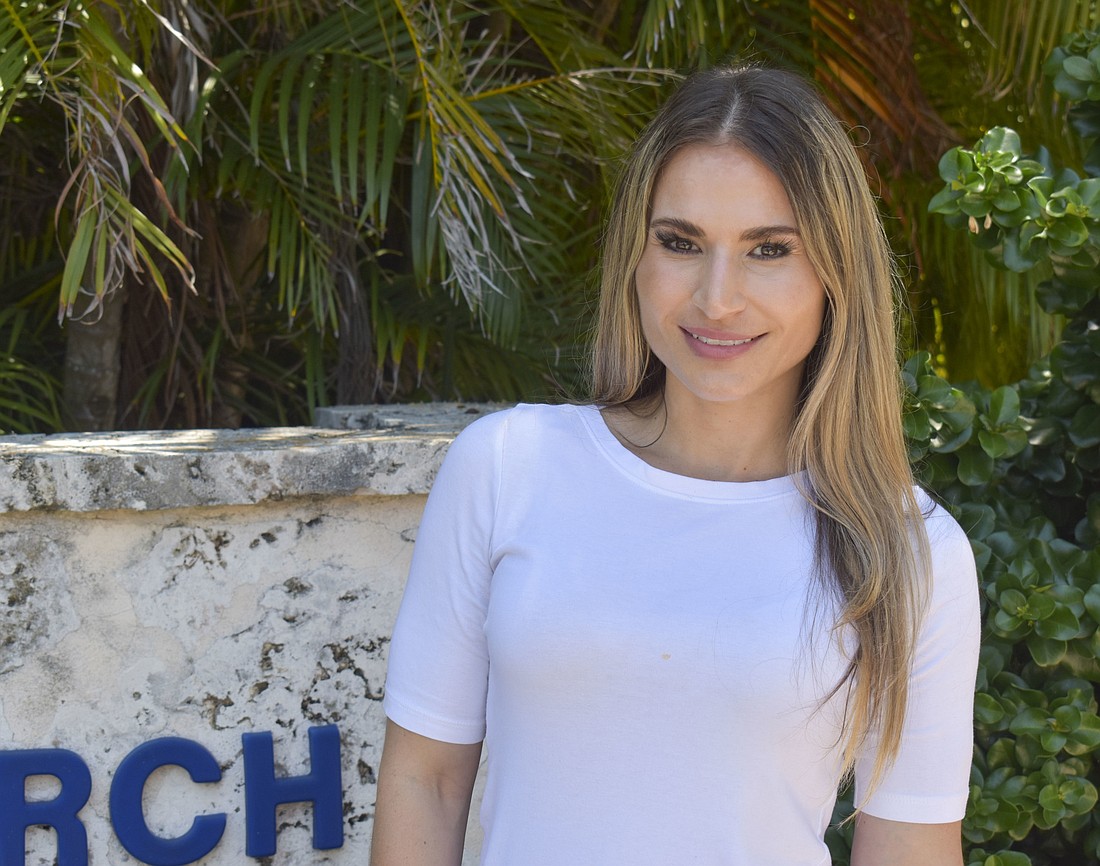- April 9, 2025
-
-
Loading

Loading

The miscommunication between scientists and the public drove Tracy Fanara to find a way to bridge the gap between the two, and she took to YouTube to do it.
As an environmental engineer and research scientist at Mote Marine Laboratory and Aquarium, Fanara manages the Environmental Health Program and investigates the effects marine and freshwater chemicals have on public health.
“The lack of information and the disconnect, not only between the public and scientists, but between humans and our natural environment in our necessity to survive [is astounding],” Fanara said.
Enter “Inspector Planet,” Fanara’s YouTube channel.
Originally started as part of her dissertation at the University of Florida, the channel turned into a place for Fanara to find different ways to engage the community in science. The channel later caught the eye of the Discovery Channel’s “MythBusters” TV show, and in 2017 she starred in “MythBusters: The Search.”
As “Inspector Planet,” she travels around Florida to tackle everything from investigating Lake Alice at UF and dispelling widely believed animal myths to rapping about climate change.
She is working on three new modules for “Inspector Planet”: IP Investigates, IP Renovates and IP Raps.
IP Investigates will show what goes on in the scientific world to try to find a way to get to the bottom of it, IP Renovates will focus on finding ways to make houses more sustainable, and IP Raps will take popular songs like “Ice, Ice, Baby” by Vanilla Ice and turn them into Earth-conscious tunes.
“It’s a mission to close the gap between the public and scientists by bringing information and empowering the public through citizen science,” Fanara said.
“It’s a mission to close the gap between the public and scientists by bringing information and empowering the public through citizen science,” Fanara said.
That’s where Mote comes in, she said, because citizen science is a tenet of the aquarium.
Fanara hopes to encourage community members to engage with reporting on red tide through programs like Citizen Science Information Collaboration, which allows people to report when they experience respiratory irritation and see dead fish or discolored water.
“Not only does it inform and educate the public, but it empowers the public,” Fanara said of the program. “It allows them to report these conditions that they’re seeing. So their voice is being heard, and it’s being displayed for everybody to see.”
As an environmental engineer, Fanara focused on Florida watersheds as a whole. But once hired at Mote to study red tide, she looked at water on a micro scale.
“I’m very big picture,” Fanara said. “They’ve been working on [red tide] for 50 years, and they haven’t solved it yet. So [I thought] I’m going to go in there and solve it real quick, and then I can move onto stormwater design. Well, I was humbled really quickly by the complexity of our biological, chemical and physical systems in our Gulf of Mexico.”
Fanara’s environmental engineer work meets her research scientist side with programs such as the Beach Conditions Reporting System, a website that reports the beach conditions of 38 Gulf Coast beaches, and the citizen science collaboration.
Born and raised in Buffalo, N.Y., Fanara’s fascination with science began at an early age.
It all started with Love Canal, a neighborhood in Niagara Falls, N.Y., known for its environmental pollution. She learned of the toxic waste that industries were dumping into the water that infiltrated the soil and groundwater of the city’s nearby houses and schools.
Stories about how the toxic waste caused birth defects, cancer clusters and made children’s sneakers melt to the ground made her want to figure out how to stop environmental disasters.
“Even though it all happened before I was born, my friend’s parents were affected,” Fanara said. “I learned how our impacts then impact the environment and how the environment then impacts our health. … Everything is full circle. I wanted to do something, whether I was paid for it or not, and that’s when I realized that I found my passion.”